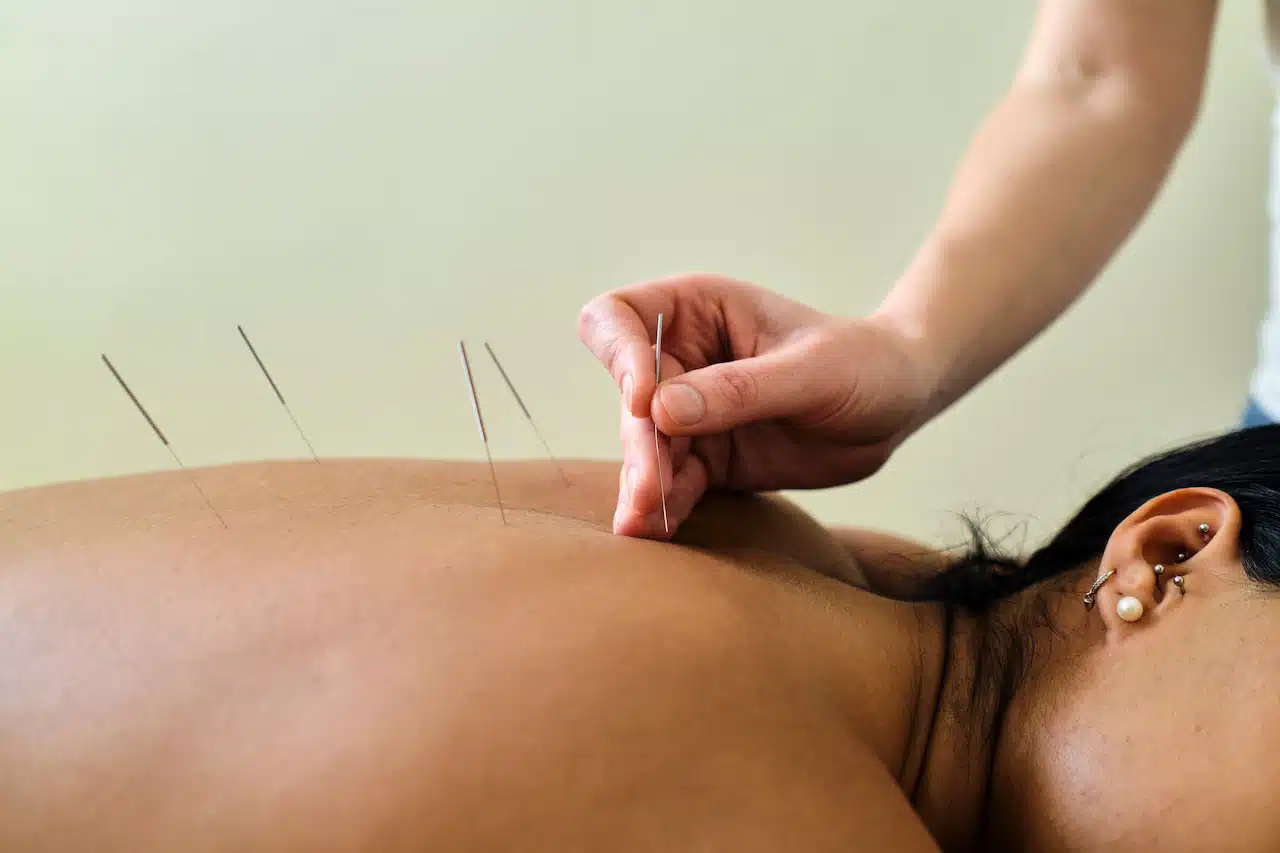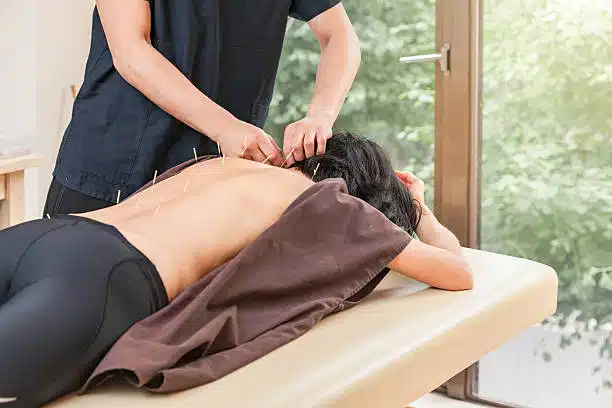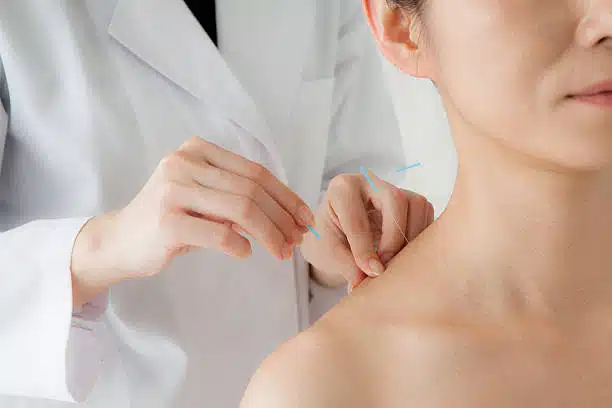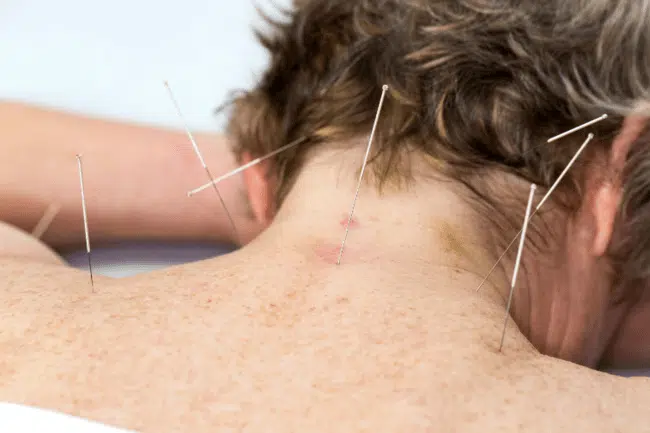Are you among the many who experience lightheadedness or a spinning sensation during spring and fall? Seasonal vertigo is a common condition triggered by seasonal allergies and changes in weather. It causes dizziness, imbalance, nausea, and headaches, making routine activities challenging and affecting work, social interactions, and overall quality of life.
Acupuncture can help manage seasonal vertigo by offering a natural and effective treatment. This ancient practice helps ease vertigo symptoms, even those stemming from allergic reactions and inflammation.
In this blog, we’ll discuss the various benefits of acupuncture for treating seasonal vertigo and improving overall wellness.
Understanding Seasonal Vertigo
What Is Seasonal Vertigo?
Seasonal vertigo refers to a type of dizziness associated with seasonal changes. Unlike other types of vertigo, which may stem from vestibular (relating to the inner ear) disorders or neurological issues, seasonal vertigo is often triggered by changes in weather and allergic reactions.
You may experience dizziness, difficulty maintaining balance while standing or walking, nausea, and headaches. These symptoms can vary in intensity with increased exposure to allergens common during certain seasons—particularly spring and fall—hence the name.
Common Triggers of Seasonal Vertigo
Several factors can trigger seasonal vertigo.
- Temperature fluctuations. Rapid temperature changes can affect the body's equilibrium.
- Pollen. High pollen counts during spring can lead to allergic reactions that impact the inner ear.
- Mold. Increased mold exposure in damp conditions can also trigger allergic responses, potentially triggering seasonal vertigo.
- Other Allergens. Dust mites and pet dander may contribute to sinus congestion and vertigo.
These triggers can lead to inflammation in the sinuses and eustachian tubes, small canals that run from the middle ear to the back of the throat and nose responsible for stabilizing air pressure and draining liquids from the middle ear. When these tubes become clogged or inflamed, pressure imbalances disrupt normal ear function, leading to vertigo.
The Role of Acupuncture in Managing Vertigo
Acupuncture is a holistic traditional Chinese medicine practice that involves stimulating certain points in the body to restore balance and promote healing. This ancient practice is based on the body's natural energy flow called “qi” (pronounced as “chee”). Qi disruption influences physical and emotional states and causes various health issues. It can manifest as dizziness and nausea—two prominent symptoms of vertigo.
Acupuncture can help address that disruption, promoting the body's natural healing abilities. It can target points related to the inner ear, which helps maintain your sense of balance. Key acupuncture points for managing vertigo include the following:
- Triple Warmer 17 (TW 17). Located behind the earlobe, the TW 17 point helps relieve pressure in the ears and reduce dizziness.
- Gall Bladder 20 (GB 20). This point is found at the skull's base, effectively alleviating headaches and improving overall balance.
- Pericardium 6 (P6). Situated on the inner forearm, the P6 point can help alleviate vertigo-related nausea.
A 2023 case study found that acupuncture effectively treated benign paroxysmal positional vertigo (BPPV), a common type of vertigo. The patient’s vertigo significantly improved after eight weeks of treatment. A 2015 study also showed that acupuncture can treat immediate discomfort and dizziness associated with vertigo without adverse effects.
Benefits of Acupuncture for Seasonal Vertigo
Natural and Holistic Approach
Acupuncture can help manage seasonal vertigo naturally. It can ease vertigo symptoms without medication and potential side effects like drowsiness and dry mouth. Furthermore, unlike drugs that merely mask your symptoms, acupuncture for dizziness and balance addresses their root causes, relieving pressure and imbalance for lasting relief.
Reducing Stress and Enhancing Relaxation
Stress can worsen dizziness and imbalance, exacerbating vertigo. Acupuncture reduces stress and promotes relaxation, which can aid in managing vertigo. Doctors can help you relax by targeting specific acupuncture points and sessions that promote a sense of tranquility.
Relaxation through acupuncture prevents the onset of vertigo episodes and improves overall health. A relaxed state enhances circulation and reduces inflammation, mitigating dizziness and vertigo. It also allows your body to function more effectively, improving your quality of life.
What to Expect During Acupuncture Treatment for Vertigo
Initial Consultation and Assessment
Your doctor will assess your medical history, symptoms, and specific vertigo triggers in your first acupuncture session. You will then discuss how frequent and intense your vertigo episodes are, their accompanying symptoms, and lifestyle factors that might contribute to them.
Your doctor will create a personalized treatment plan based on that assessment. This treatment plan will outline specific acupuncture points to target and complementary techniques to manage your vertigo more effectively.
Treatment Sessions and Techniques
Expect a calm and relaxing environment during your acupuncture sessions as your doctor carefully places fine needles into specific points on your body. One session lasts 30 to 60 minutes, during which you're encouraged to close your eyes, relax, and breathe slowly and steadily.
In addition to needle insertion, your doctor may integrate cupping, vitamins, and other complementary techniques to enhance your treatment. Cupping can help improve blood flow, and vitamins can support overall wellness.
The total number of sessions needed to see improvement varies. Many report feeling relief after just three to four sessions, but long-term relief usually takes 20 to 40 regular sessions over two to five months.
Combining Acupuncture with Other Therapies
Integrative Approach to Vertigo Management
Acupuncture can be combined with other natural treatments for vertigo like chiropractic care, physical therapy, dietary guidance, and other therapies. This approach addresses the structural, neurological, and environmental factors of vertigo, further boosting the effectiveness of your acupuncture treatment.
Chiropractic care, for instance, can address the musculoskeletal issues that may contribute to vertigo and other balance or vestibular issues. Chiropractors can treat dizziness and balance problems by correcting subluxations or misalignments in the neck and spine using careful and targeted adjustments.
Lifestyle Tips for Preventing Vertigo
Aside from professional treatment, you can also take proactive steps to prevent vertigo. Some simple lifestyle changes can help minimize the effect of seasonal triggers and avoid episodes of vertigo.
- Manage allergies. Keep your windows shut during high pollen seasons, use air purifiers, and consider allergy medications as recommended by a healthcare provider.
- Stay hydrated. Hydration helps maintain balance and reduce dizziness. Drink eight to ten glasses of water every day.
- Avoid sudden movements. Quick head movements can trigger vertigo episodes. You can slowly move when changing positions or turning your head.
- Practice stress management. High stress levels can worsen vertigo symptoms. Employ relaxation techniques such as yoga or meditation to reduce stress and mitigate symptoms.
- Maintain a healthy diet. A balanced diet loaded with nutrients, vitamins, and minerals helps sustain overall health. Consider foods that promote circulation and reduce inflammation.
Takeaway
Before you take medications for seasonal vertigo, consider the wonders of acupuncture. As a holistic approach to vertigo relief, it addresses the imbalances and inflammation that cause its symptoms, providing lasting relief.
Unlike medication, acupuncture is one of the safe and effective natural treatments for vertigo. It provides an alternative to drugs and invasive procedures while effectively reducing dizziness, improving your balance, and enhancing overall wellness.
Say goodbye to seasonal vertigo. Explore how acupuncture can help manage seasonal vertigo here at Hogan Chiropractic! Our experienced doctor can assess your symptoms and make an effective treatment plan tailored to your needs.
Contact us to schedule your consultation today!







